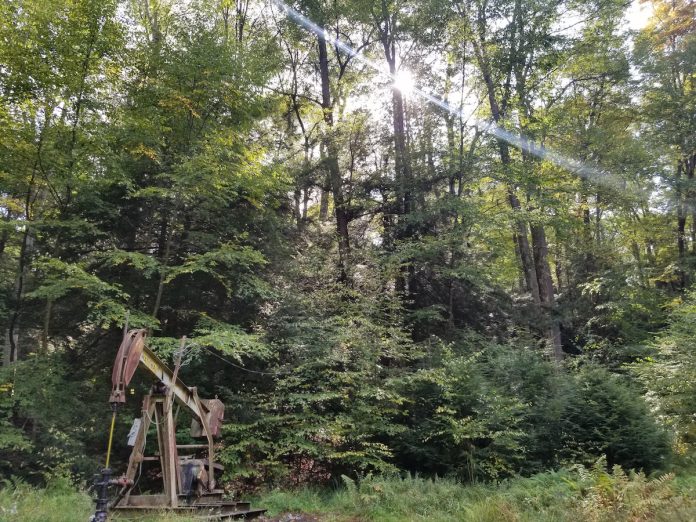
About a quarter of conventional oil and gas well operators in Pennsylvania filed their annual production and inspection data to the state on time in 2021. Another 12% filed their reports late. More than half the conventional oil and gas well operators in the state never reported their production data at all.
It is part of a pattern of flouting the Pennsylvania Department of Environmental Protection’s regulations around conventional wells, according to a report recently made public by Gov. Tom Wolf’s administration. In fact, “failure to report seems to be an industry-wide rule rather than the exception,” the report stated.
The DEP released the first-ever assessment of the compliance of conventional oil and gas operators on Dec. 29 in conjunction with the state’s annual oil and gas report.
Though conventional wells don’t produce gas as prolifically as newer unconventional wells, they make up the majority of the wells ever drilled in Pennsylvania and, research shows, make up a disproportionate amount of the methane emissions, compared with production. There are about 185,000 conventional wells in the DEP’s database and only a quarter are plugged. There are believed to be many more historic wells around the state that the DEP doesn’t know about.
This is another area where conventional operators are skirting the law, according to the report.
“Failure to plug a well upon abandoning it” was the most frequent violation issued to well operators in the past 5 years. It was handed out more than 3,000 times since 2017. Other frequent violations include improperly managing residual waste and failure to manage production fluids.
The department has the power to fine up to $25,000 plus $1,000 for each day the violation continues, but it only assessed and collected $1.3 million from non-compliant operators since 2017.
The DEP in the report said its enforcement tools and techniques aren’t working, but no changes to its enforcement policy are needed. “With some additional resources, streamlined processes and focused efforts, the department’s existing tools might be used in a way that will provide effective deterrence from non-compliance by the conventional oil and gas industry,” the report said.
The department will need more funding and for operators to get with the program.
“A significant change in the culture of non-compliance as an acceptable norm in the conventional oil and gas industry will need to occur before meaningful improvement can happen,” the report said.
The DEP laid out a variety of measures it plans to implement, including administrative orders, permit denials, civil penalty assessments, bond forfeiture, entry and docketing of liens, criminal referrals when appropriate, permit suspension and revocation, and increased scrutiny of permit transfer and regulatory inactive status requests.
Wolf ordered the DEP to look into the industry’s lack of compliance as part of a lapsing statement for House Bill 2644, which allocated federal funds from the Infrastructure Investment and Jobs Act for orphan well plugging. The bill was sponsored by state Rep. Martin Causer, R-Coudersport.
Wolf withheld his veto on the bill, allowing it to become law without his signature, but said he had several issues with the legislation, including not complying with federal standards, not handing out enough money in the grants to actually plug wells and stripping the ability of the Environmental Quality Board to raise bonding rates that are already too low. Environmental groups decried the governor’s lack of action in stopping the bill, saying it set back orphan well plugging efforts.
(Reporter Rachel Wagoner can be reached at 724-201-1544 or rachel@farmanddairy.com.)










